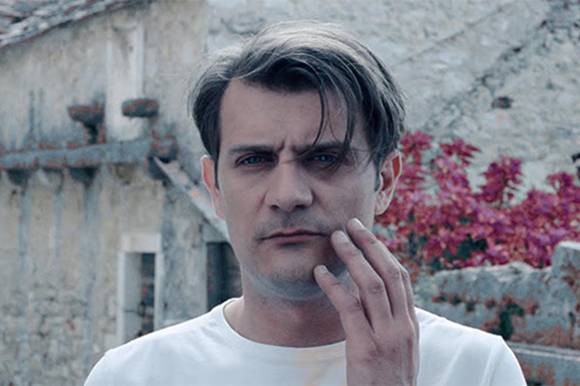It was a very good year for Croatian documentaries and animated films, which received several accolades at international festivals.
Admissions for domestic films in Croatia decreased from 121,205 in 2017 to 55,709 in 2018, as the number of theatrically released domestic films dropped drastically from 16 in 2017 to seven in 2018.
On 19 July 2018 the Parliament adopted a bill on audiovisual activities, put forward by the Croatian Government on 22 March 2018. The law introduces a new structure for the Council and the Managing Board of the Croatian Audiovisual Centre (HAVC) and regulates the definitions of audiovisual works so as to include video games.
The Eighth Commissioner by Ivan Salaj was chosen to represent Croatia in the Best Foreign Language Film category at the 91th Academy Awards 2019.
PRODUCTION
The list of Croatian films shot in 2018 includes projects by well-known directors as well as debut features of various genres. Most of them are supported by the Croatian Audiovisual Centre.
Milan Trenc shot his third feature film Fishing and Fishermen's Conversations / Ribanje i ribarsko prigovaranje starring Rade Šerbeđija in 2018. The film is based on the philosophic narrative poem and travelogue writings of Croatian Renaissance poet Petar Hektorović, first 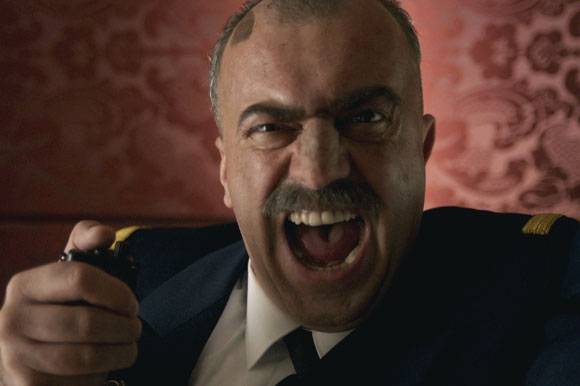 printed in Venice in 1568. Trenc is producing through Studio Devet.
printed in Venice in 1568. Trenc is producing through Studio Devet.
In autumn 2018 The Voice aka God in a Shoe, a drama about faith directed by the acclaimed Croatian writer/director Ognjen Sviličić, entered postproduction. The producer is Maxima Film.
The new feature film by Danilo Šerbedžija, Teresa 33, wrapped shooting in Split on 22 July 2018, produced by Focus Media.
Last Serb in Croatia / Posljednji Srbin u Hrvatskoj, a debut feature by director Predrag Ličina, was also shot in 2018. The film is produced by Kinorama in coproduction with Belgrade's Art & Popcorn. It will be theatrically released in Croatia by 2i Film on 28 February 2019.
The feature film Dopunska nastava directed by Ivan Goran Vitez and produced by Interfilm started shooting in 2018.
Zora, the new feature film by Dalibor Matanić, was also shot in 2018 with Kinorama producing.
Vinko Brešan’s comedy Koja je ovo država, produced by Interfilm in coproduction with Serbia’s Zillion Films, was completed in 2018 and it was theatrically released in December 2018.
In 2018 Croatian director Goran Dević was in production with the Croatian/Slovenian coproduction What's to Be Done? / Što da se radi, a 90 minutes docu-fiction following the efforts of a union leader and the workers of a train factory. Croatia’s Petnaesta umjetnost is producing in coproduction with Slovenia’s Bela film and Croatia’s Antitalent. The first part has already been shot and the second part is currently in the financing stage with shooting expected from 1 September to 1 November 2020.
Another documentary shot in 2018 is Kuća na Kraljevcu 35 directed by Pero Kvesić and produced by Factum.
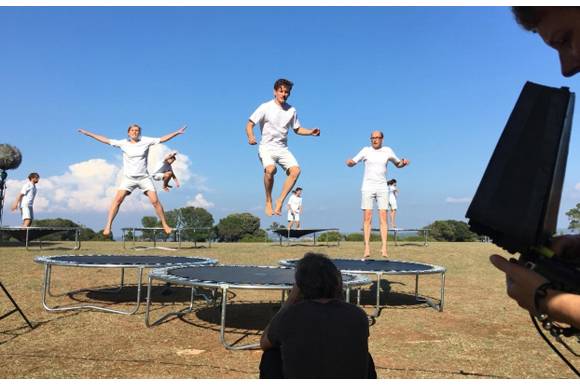 As of July 2018, the cash rebate was raised from 20% to 25%, with additional 5% for productions in regions of below average development.
As of July 2018, the cash rebate was raised from 20% to 25%, with additional 5% for productions in regions of below average development.
Fourteen projects applied for tax incentives in Croatia in 2018. According to Filming in Croatia within the Croatian Audiovisual Centre, the local expenditure exceeded 15.5 m EUR. Eleven projects had applied in 2017, with a local expenditure of 24.7 m EUR.
Among the projects that applied for incentives in 2018 are: season 8 of the HBO series Game of Thrones, the Belgian/Dutch/Bulgarian/Croatian coproduction The Barefoot Emperor by Jessica Woodworth and Peter Brosens, Se ti abbraccio non aver paura directed by Gabriele Salvatores, and the HBO series Uspjeh directed by Danis Tanović. The historical drama The Master Butcher's Singing Club directed by Ulrich Edel, shot in Croatia in 2018, was the first foreign production using incentives for filming in regions of particular national interest. Kijevo, where the first scenes were shot, and other locations from Šibenik-Knin, Sisak-Moslavina and Zagreb counties, are new for the film industry. The film is produced by the German company MOOVIE GmbH with Pakt Media servicing.
Filming for the eight and final season of the HBO series Game of Thrones begun in Dubrovnik in February 2018. Dubrovnik has been used as the location for King’s Landing since season 2, with Embassy Films servicing ever since.
The American production The Islander directed by Dom Mazuran and Zoran Lisinac was shot in Croatia and Serbia from May till early July 2018. The film benefits from the incentives schemes in both Croatia and Serbia. U.S. Garden of Titans is producing and financing. Dida Boza is the service provider in Croatia.
The Belgian/Dutch/Bulgarian/Croatian coproduction The Barefoot Emperor / Bosonogi car by Jessica Woodworth and Peter Brosens, a mockumentary and a sequel to King of the Belgians, completed filming in Croatia on 15 October 2018. It is produced by Entre Chien et Loup, Art Fest and Topkapi Films, along with Croatia’s coproducer Propeler Film.
DISTRIBUTION
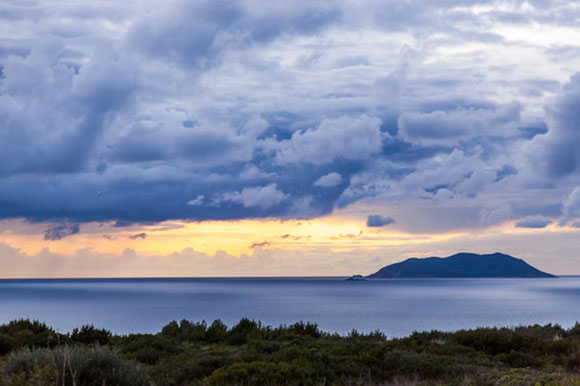 A total of 229 films were distributed in cinemas in 2018, including seven domestic films (five from 2018 and two released in 2017).
A total of 229 films were distributed in cinemas in 2018, including seven domestic films (five from 2018 and two released in 2017).
A total of 228 films were distributed in cinemas in 2017, of which 210 were new openings. Sixteen domestic films were released in 2017, including 13 new releases and three films released in 2016.
The biggest domestic distributor is Blitz, followed by Continental Film.
In July 2018 Factum, one of the most important Croatian documentary film production companies, launched a new project, Factum Online, and its first stage is a VOD platform, which offers more than 70 documentaries produced by Factum. In September 2018 the second stage of the project featured the first ever DokuChat guest, with writer/director Miha Čelar presenting his latest documentary film iOtok and the interactive series under the same title.
The drama series Newspapers / Novine directed by Dalibor Matanić was sold to Netflix in 2018, thus becoming available in 130 countries. Netflix also bought the second season of the series, produced in 2018. Newspapers describes the decline of the Croatian press, the director told FNE. The script is written by the famous journalist and scriptwriter Ivica Dikić. Drugi Plan produced the series for the Croatian Television.
In 2018 Britain’s Channel 4 and Sweden’s public broadcaster SVT acquired the Croatian Radio and Television’s (HRT) mini-series Guardian of the Castle directed by Lukas Nola and set in Croatia at the end of the 1980’s. The four-part political thriller was also made available on-demand in the US, according to the show’s producer Kinorama. The series premiered on HRT in September 2017.
The awarded Croatian/Czech/Macedonian/British coproduction The Constitution / Ustav Republike Hrvatske by Rajko Grlić was released in Italian cinemas on 4 April 2018 and in the U.S. in May 2018. The film's festival success is confirmed by 32 awards. Sadly, one of the main actors of the film, the acclaimed Bozidar Smiljanic, passed away on 7 April 2018, following the main actor Nebojša Glogovac, who died on 9 February 2018.
The Constitution / Ustav Republike Hrvatske was produced by Interfilm and coproduced by In-Film, Sever&Sever, the Croatian Radio Television HRT and NP7, Revolution Production and Film and Music Entertainment.
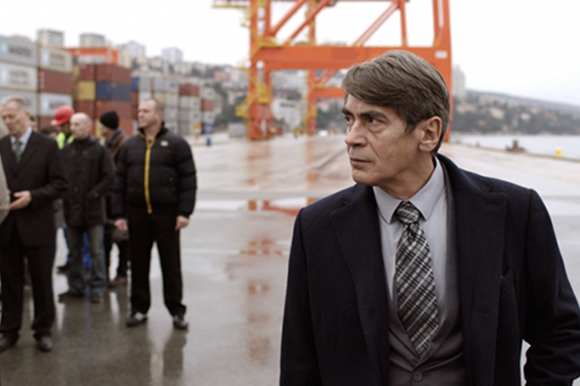 In September 2018 the Croatian/Bosnian coproduction The Eighth Commissioner / Osmi povjerenik by Ivan Salaj was selected as Croatia’s official entry for the US Academy Awards in the Foreign Language Film category. The decision was made via a secret ballot by the Croatian Society of Film Workers (HDFD).
In September 2018 the Croatian/Bosnian coproduction The Eighth Commissioner / Osmi povjerenik by Ivan Salaj was selected as Croatia’s official entry for the US Academy Awards in the Foreign Language Film category. The decision was made via a secret ballot by the Croatian Society of Film Workers (HDFD).
This drama/comedy, based on a book by Renato Baretić, was produced by Croatia’s Alka film in coproduction with Embrio Production, Hrvatska radiotelevizija (HRT), Kadar film from Bosnia and Herzegovina and Croatia’s Olimp produkcija.
Most of the awards at international festivals received in 2018 went to documentaries and animated films, both majority and minority Croatian coproductions.
Nebojša Slijepčević’s Srbenka, produced by Restart, was awarded best documentary at the 24th Sarajevo Film Festival, while Leon Lučev won the best actor award for the Croatian minority coproduction The Load, directed by Ognjen Glavonić and coproduced by Kinorama.
Srbenka was also nominated for Best European Documentary at the 2018 European Film Awards. The film had its world premiere at the Visions du Réel Festival in Nyon, where it received a Special Jury Mention, while in Cannes it won the Doc Alliance Award.
Cyclists by Veljko Popović was awarded the Jury Prize at the 2018 International Animation Festival in Annecy.
The long documentary On the Water, directed by Goran Dević and produced by Petnaesta umjetnost, received the Honorary Mention at the 61st International Leipzig Festival for Documentary and Animated Film.
The short animated film A Demonstration of Brilliance in Four Acts, directed by Lucija Mrzljak and Morten Tšinakov, won the Grand Prix in the international animated film category at Poland’s IFF Etiuda & Anima. This Croatian/Estonian coproduction also received the Special Jury Mention in the international competition of the Montreal Animated Film Summit (Sommets du cinéma d’animation).
The Czech/Croatian coproduction When the War Comes directed by Jan Gebert won the Silver Eye prize for best feature length film at the 22nd Ji.hlava International Documentary Film Festival. The film produced by Pink and coproduced by HBO Czech Republic and Hulahop also received the Best Central and Eastern European Director award at the 2018 Astra Film Festival in Sibiu, Romania.
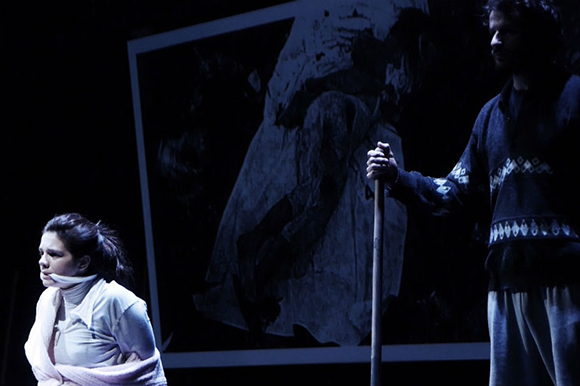 EXHIBITION AND BOX OFFICE
EXHIBITION AND BOX OFFICE
The European branch of the International Cinema Technology Association (ICTA) gave its 2018 New Build Cinema of the Year award to the Cinestar 4DX, Mall of Split, during a ceremony that took place in Barcelona on 10 June 2018, the opening day of ICTA’s seminar series. The announcement was made on 23 April 2018. The awards celebrate technological leadership and innovation in the European cinema exhibition industry.
In 2018 total admissions were 4,702,143 and total gross 147,426,590 HRK, according to estimates provided by Continental Film.
In 2017 total admissions were 4,637,287 and total gross 18,398,215 EUR / 136,778,122 HRK, according to Continental Film.
Domestic admissions decreased from 121,205 in 2017 to 55,709 in 2018 and as a consequence the box office decreased from 2,767,018 in 2017 to 1,559,829 in 2018, according to Continental Film.
The general admissions top ten 2018 is composed of: Bohemian Rhapsody (194,497 admissions), The Grinch (156,785), A Star Is Born (132,153), Avengers: Infinity War (125,975), Deadpool 2 (122,060), Mamma mia! Here We Go Again (111,145), Hotel Transylvania 3: Monster Vacation (107,271), Aquaman (96,712), The Nun (90,387) and Venom (88,376).
The most popular Croatian films in 2018 were: The Eighth Commissioner / Osmi Povjerenik directed by Ivan Salaj and distributed by 2iFilm (with 31,828 admissions), and Comic sans directed by Nevio Marasović and distributed by 2iFilm (with 14,030 admissions).
The other domestic films in cinemas in 2018 were: F20 directed by Arsen Anton Ostojić, produced by Filmosaurus Rex and distributed by Duplicato Media (4,905 admissions), Aleksi directed by Barbara Vekarić, produced by Studio dim and distributed by 2iFilm (3,657 admissions), the Croatian minority coproduction Neparožderi aka The Oddsockeaters / Lichožrouti directed by Galina Miklínová, coproduced by Filmosaurus Rex and distributed by Duplicato Media (801 admissions), Happy End directed by Darko Šuvak, produced by Alka film and distributed by Continental Film (458 admissions), Dead Fish / Mrtve ribe directed by Kristijan Milić, produced by Eurofilm and distributed by Continental Film (30 admissions). Both Neparožderi and Dead Fish / Mrtve ribe had their premiere in 2017 but continued exhibition in 2018.
GRANTS AND NEW LEGISLATION
The most important film institution is the Croatian Audiovisual Centre (HAVC) founded in January 2008. HAVC operated with a total annual budget of 9.11 m EUR in 2012, a total budget of 9.30 m EUR in 2013, of 9.03 m EUR in 2014 and 7.99 m EUR in 2015. HAVC’s total budget for 2016 was 8.67 m EUR and 10.15 m EUR in 2017 and the total budget in 2018 (without the cash rebate) was 9.8 m EUR.
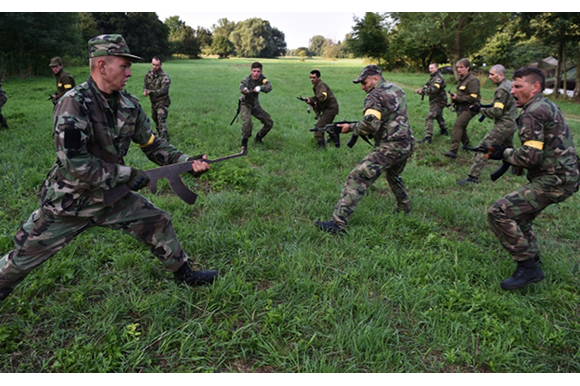 The HAVC is currently headed by Daniel Rafaelić, who was named acting director in February 2017 and director in May 2017 for a four year term. Daniel Rafaelić replaced Hrvoje Hribar.
The HAVC is currently headed by Daniel Rafaelić, who was named acting director in February 2017 and director in May 2017 for a four year term. Daniel Rafaelić replaced Hrvoje Hribar.
On 12 February 2018 the Croatian Audiovisual Centre distributed 272,300 EUR / 2,025,000 HRK to three minority coproductions directed by Peter Brosens & Jessica Woodworth, Metod Pevec and Ines Tanović. A total of 27 projects applied through 26 October 2017.
On 29 March 2018 HAVC distributed 2,135,735 EUR / 15,880,000 HRK as production grants for feature films, debut features, long documentaries, short documentaries, short fiction films and experimental films, and also as project and script development grants. The biggest grant (524,519 EUR / 3.9 m HRK) went to the feature film Bischofshofen by Igor Mirković.
The production grants were allotted to two feature films, three debut features, four experimental films, four short fiction films, three long documentaries and two short documentaries, and also for the postproduction of two long documentaries and one short fiction film.
In April 2018 HAVC distributed 226,000 EUR / 1.7 m HRK to eight short animated films.
In July 2018 the HAVC distributed 2,280,000 EUR / 17,160,000 HRK to feature film, documentary and short film production and minority coproductions, as well as to script and project development. The six minority coproduction grants went to projects directed by Chintis Lundgren & Christin Peets, Gjergj Xhuvani, Ronnie Sandah, Tiha Gudac, Zdenko Jurilj and Mitja Ličen & Sonja Prosenc.
In November 2018 the HAVC allotted 370,666 EUR / 2,780,000 HRK for minority coproduction grants and for script and project development grants, 124,000 EUR / 930,000 HRK for script and project development of television projects, 247,000 EUR / 1,855,000 HRK for seven short animated films and 62,000 EUR / 470,000 HRK for four experimental films.
New projects by Goran Paskaljević and Srđan Vuletić are among the seven Croatian minority coproductions receiving production funding.
A total of 59 foreign productions have used the tax incentives scheme since its launch in 2012: five in 2012, four in 2013, eight in 2014, ten in 2015, seven in 2016, eleven in 2017 and 14 in 2018.
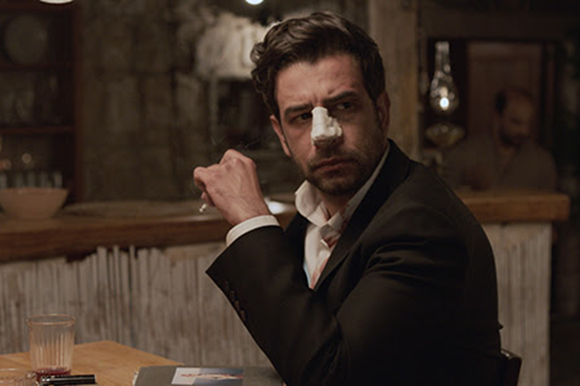 Under the cash rebate scheme, projects can claim back 25% of their qualifying expenditure, which is based on the cost of the Croatian cast and crew working in Croatia, as well as goods and services purchased in Croatia, with a cap of around 2.6m EUR per project. As of July 2018, the cash rebate was raised from 20% to 25%, with additional 5% for productions in regions of below average development.
Under the cash rebate scheme, projects can claim back 25% of their qualifying expenditure, which is based on the cost of the Croatian cast and crew working in Croatia, as well as goods and services purchased in Croatia, with a cap of around 2.6m EUR per project. As of July 2018, the cash rebate was raised from 20% to 25%, with additional 5% for productions in regions of below average development.
The Istria Film Commission was launched in July 2015, following the example of the Zadar Film Commission in helping filming crews in location scouting, communication with public authorities and domestic producers and crew, obtaining filming permits and accessing databases. A new film commission, Kvarner Film Commission, opened in Rijeka in 2017.
Additional public support bodies are the Zagreb City Office for Education, Culture and Sport and the Rijeka City Office for Culture and Split.
The bill on audiovisual activities put forward by the Croatian Government on 22 March 2018 was adopted by the Parliament on 19 July 2018. The law introduces a new structure for the Council and the Managing Board of the Croatian Audiovisual Centre (HAVC) and regulates the definitions of audiovisual works so as to include video games, thus creating a legal framework for further development of one of the most propulsive segments of the audiovisual industry.
„The new law improves the current functioning of the Croatian Audiovisual Centre. Especially in regard to a clearer definition of the Audiovisual Council and Managing Board activities, as well as stricter regulations regarding potential conflicts of interests“, Daniel Rafaelić, the Head of the Croatian Audiovisual Centre, told FNE.
The Law on Audiovisual Activities which established the Croatian Audiovisual Centre was adopted in 2007.
TV
As stipulated by the 2007 Croatian Film Act, Croatian public broadcaster, the Croatian Radiotelevision (HRT), as well as all other Croatian broadcasters with a national concession (Nova TV, RTL) are obliged to contribute towards the funding of the HAVC.
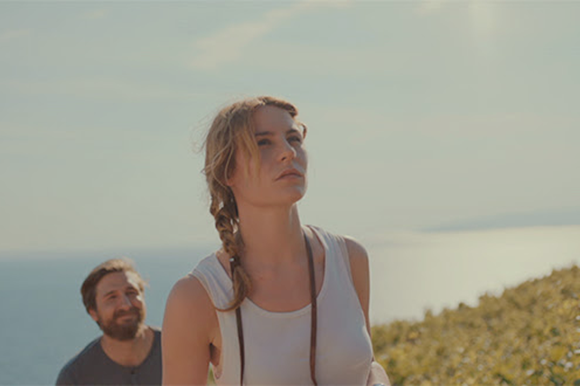 As a public broadcaster, the Croatian Radiotelevision plays an important role in the promotion of national cinema through its two terrestrial and two digital channels, and is legally obliged to invest a minimum of 15% of its programming budget in works by independent producers.
As a public broadcaster, the Croatian Radiotelevision plays an important role in the promotion of national cinema through its two terrestrial and two digital channels, and is legally obliged to invest a minimum of 15% of its programming budget in works by independent producers.
Uspjeh, the first HBO original series for HBO Adria, completed shooting in Zagreb at the end of May 2018. According to comments by HBO Adria producer Ana Balentovic, work on the six-part series lasted 18 months, while the shooting began in March 2018. The series was written by Marjan Alcevski and directed by Danis Tanović. The script was chosen from among 570 applications to the HBO Adria “First Draft” competition.
Also in 2018 the acclaimed Croatian director Dalibor Matanić shot the six-part TV series The Last Socialist Artefact. The project is a Croatian/Serbian coproduction produced by Kinorama in coproduction with Sense Production.
According to the Croatian Audiovisual Centre, the series is among the 16 projects selected from 312 applications for the prestigious television coproduction forum Series Mania Television Festival, which will take place in Paris mid-April 2017. The Last Socialist Artefact / Područje bez signala is the first Croatian television series to be pitched at this coproduction market.
CONTACTS:
Croatian Audiovisual Centre (HAVC)
Nova Ves 18
10 000 Zagreb, Croatia
Phone: +385 (0)1 6041 080
Fax: +385 (0)1 4667 819
www.havc.hr
This email address is being protected from spambots. You need JavaScript enabled to view it.
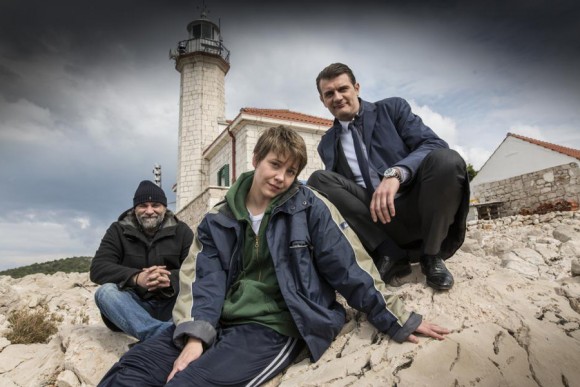 MEDIA Desk Croatia
MEDIA Desk Croatia
Ulica Kralja Zvonimira 20
10 000 Zagreb, Croatia
Phone: +385 (0)1 4655 434
Fax: +385 (0)1 4655 442
www.mediadesk.hr
This email address is being protected from spambots. You need JavaScript enabled to view it.
Ministry of Culture- Directorate for Performing Arts and Audiovisual Affairs
Runjaninova 2
10 000 Zagreb, Croatia
Phone: +385 (0)1 4866 408
Fax: +385 (0)1 4866 438
www.min-kulture.hr
Report by Iulia Blaga (2019)
Sources: the Croatian Audiovisual Centre, Continental Film

